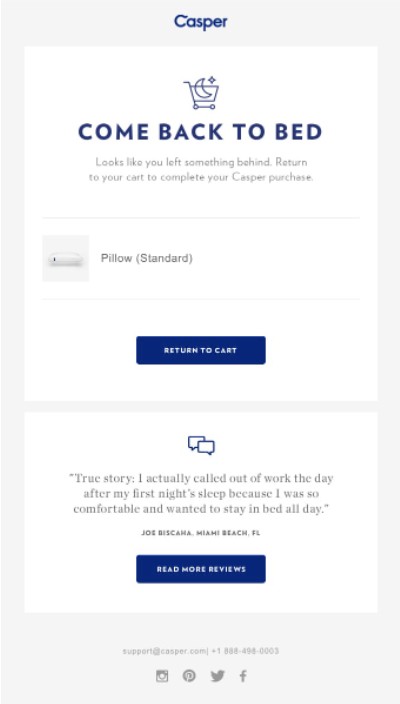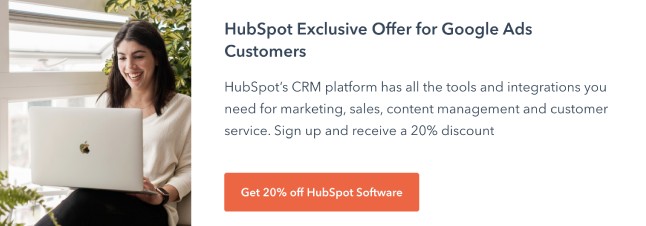As marketers, we thrive on data.
Data can help us identify when content is underperforming, and pivot to provide the highest value to our prospects and customers. It can also enable us to explore new, underutilized channels, and discover the best platforms to connect with our audiences.
All of this is to say: Any changes to the existing data collection ecosystem will create uncertainty around the future of marketing, and make some marketers fearful about how their current strategies will perform in a privacy-first world.
But a privacy-first world doesn't inhibit a company's ability to know and better serve their customers — it improves it. A privacy-first world is a world in which creating and maintaining relationships directly with your customers is the only way to truly understand them.
Here, we'll explore how the future of privacy will impact your business. Plus, how you can prepare for it.
What is a privacy-first world?
A privacy-first world means that a company's strategies, technologies, and solutions will need to adhere to a consumer's right to data privacy and security, first and foremost.
This shift has been a long time coming. Consumers no longer trust corporations with their data — in fact, only about one-third of customers believe companies are currently using their data responsibly.
Additionally, in the past year alone, 76% of consumers feel they don't know what companies are doing with their data.
To combat consumers' concerns, regulations such as the EU ePrivacy Directive CCPA, and LGPD are increasingly requiring transparency around data collection, making a privacy-first marketing strategy necessary to reach global audiences.
Certain industries have always taken a first-party data approach when it comes to building relationships with their audiences . Nonprofit and advocacy organizations, for instance, have always leveraged data collected directly from their supporters and donors for marketing materials. So while a privacy-first world might be new for some businesses, it's not new for all.
Why Privacy-First Matters
As consumers raise their standards in regards to data privacy and security, it's vital that the advertising industry adapt to meet these needs.
A privacy-first approach ultimately encourages marketers worldwide to develop stronger and more transparent relationships with prospects and customers.
First-party data allows you to better understand your customer based on information they have consented to share with you, which in turn allows ads to be more relevant.
Plus, caring about your customers' data is simply good business practice. A privacy-first strategy will become a competitive advantage in the years to come.
So the real question here should be: how can you prepare for a privacy-first world? Let's dive into that, now.
How can you prepare for a privacy-first world?
We need to reimagine our marketing and advertising strategies to ensure company growth doesn't come at the expense of consumers' trust.
As Google's Director of Product Management, Ads Privacy and Trust, David Temkin, puts it, "Developing strong relationships with customers has always been critical for brands to build a successful business, and this becomes even more vital in a privacy-first world."
To invest in and prepare for privacy-safe growth, companies need to shift to a first-party data model. Marketers that effectively use their first-party data can generate 2X the incremental revenue from a single ad placement or outreach.
To adjust to a privacy-first world, marketers will need to ensure they have systems in place to collect and measure first-party data effectively. A CRM, for instance, allows you to collect, track, and analyze your first-party data while providing your visitors with the transparency and knowledge that their data is being used for more personalized messaging and a better user experience — not for following their every move across the web.
First-Party Data Use in Action
There are tremendous advantages to first-party data when it comes to marketing. Let's say, for instance, that you recently eyed a Casper pillow, filled out a form with your email, but got distracted and abandoned the site. Later, you spot this email in your inbox:

Here, Casper marketers are using first-party data to analyze your behavior on their site. Once they've identified that you might be interested in a pillow, they can send a targeted, personalized abandoned cart email to encourage you to complete the transaction.
HubSpot and Google's New Integration for Better First-Party Data Collection
For HubSpot customers, we have good news: HubSpot will be offering an integration with Google's Enhanced conversions (EC) for web in the coming months. Among other benefits, Enhanced Conversions allows companies to increase the amount of observable conversions they can measure, and ultimately improve their return on ad spend. Visit this page to learn more and stay up to date on HubSpot's Enhanced Conversions launch.
Zoe Financial, a wealth planning platform, has seen a 200% increase in revenue by leveraging the current integration between Google Ads and HubSpot. With the addition of Enhanced conversions in the coming months, Zoe plans to continue to take full advantage of the suite of products Google and HubSpot have, thereby optimizing their marketing and client acquisition strategies.
The Founder and CEO of Zoe Financial, Andres Garcia-Amaya, said, "Our north star is the client, and clients value their privacy. Partnering with Google and HubSpot helps ensure the two-way communication of our client's data in a safe way."
To excel in a privacy-first world, marketers need to leverage clean, first-party data to measure and optimize their advertising and audience strategies. And they need to realize the full value of investments in first-party data solutions.
Change is always difficult. For marketing teams that have relied for years on third-party data for their advertising strategies, it will take time to adjust to this 'new normal' when it comes to data privacy. However, this privacy-first shift should empower marketers to use their privileges to gain trust, rather than to lose it.

